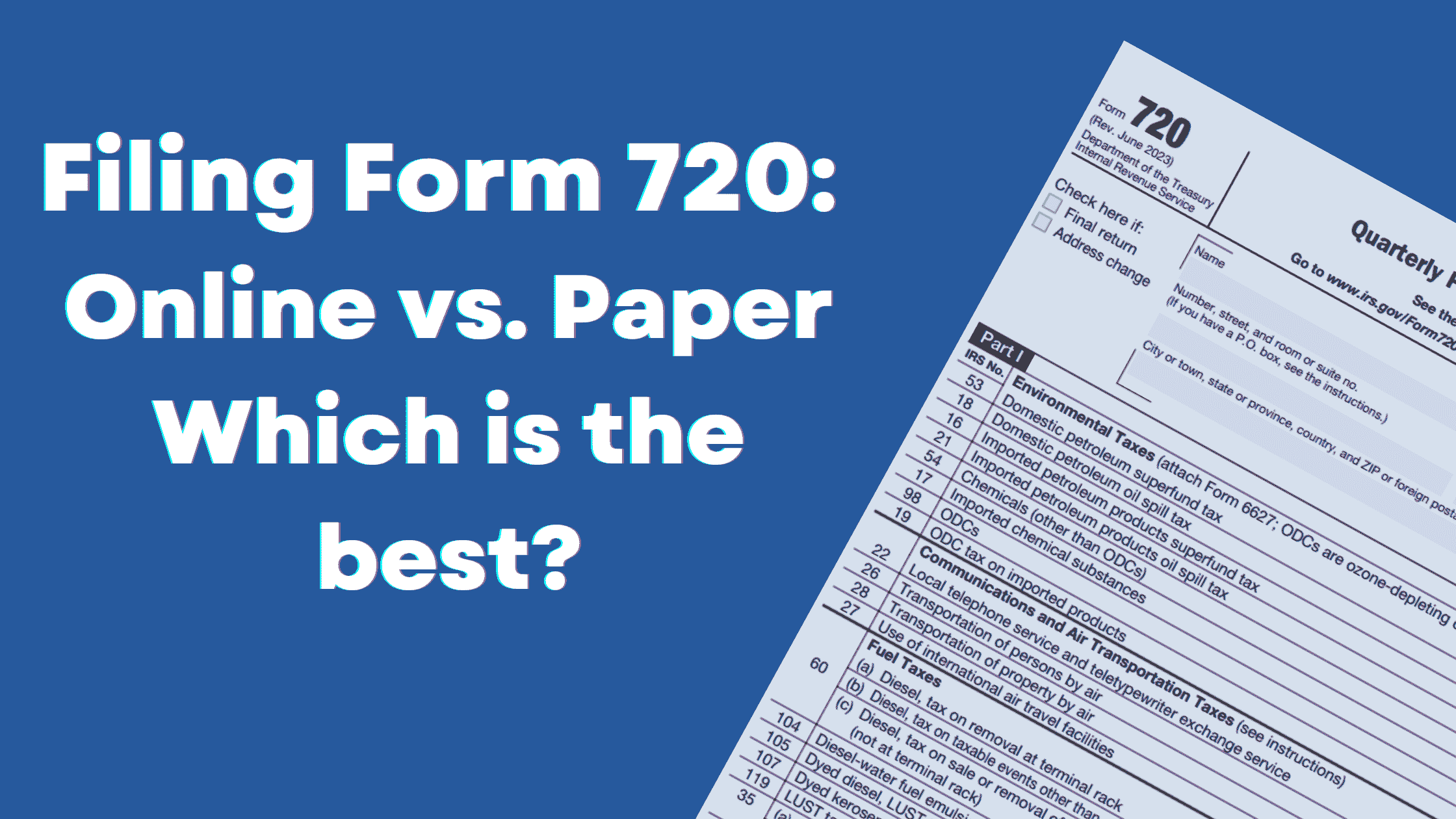
Filing Form 720: Online vs. Paper – the Pros and Cons
Filing Form 720, the Quarterly Federal Excise Tax Return, is a crucial task for businesses across various industries. One decision businesses need to make is whether to file online or opt for the traditional paper filing method.
In this comprehensive guide, we'll explore the pros and cons of both approaches to help you make an informed decision.
Online Filing: Pros and Cons
Advantages:
1. Speed and Efficiency:
Online filing is notably faster than the traditional paper method. The digital submission process reduces processing time, providing quicker acknowledgments and updates.
2. Accuracy Checks:
Most online platforms have built-in validation checks, reducing the likelihood of errors. Real-time error notifications ensure that your submission is accurate before finalizing.
3. Immediate Confirmation:
Receive instant confirmation of your filing. This immediate acknowledgment serves as proof of timely submission and can be valuable for record-keeping.
4. 24/7 Accessibility:
Online filing platforms are accessible 24/7, allowing you to submit your Form 720 at your convenience. This flexibility is especially beneficial for businesses with tight schedules.
5. Cost Savings:
Online filing eliminates the need for paper, printing, and postage costs. Businesses can save on these expenses, contributing to overall cost efficiency.
Drawbacks of filing form 720 online:
1. Internet Dependency:
Online filing requires a stable internet connection. Any disruptions in connectivity may hinder the filing process.
2. Learning Curve:
Some businesses, particularly those less familiar with digital platforms, may face a learning curve when transitioning to online filing.
3. Potential Security Concerns:
While online platforms prioritize security, there is always a slight risk of data breaches. It's crucial to choose reputable and secure filing platforms. But filing your form 720 through Simple 720 will avoid this issue as your data is 100% secure here.
Paper Filing: Pros and Cons
Pros:
1. No Internet Dependency:
Paper filing doesn't rely on internet connectivity. Businesses in areas with limited access or concerns about online security may find paper filing more suitable.
2. Physical Record:
Paper filings provide a tangible, physical record that some businesses prefer for their documentation.
3. Suitable for Small Volumes:
Businesses with relatively low filing volumes may find paper filing manageable and straightforward.
Cons:
1. Slower Processing:
Paper filings generally take longer to process. Delays in receiving acknowledgments or updates can occur.
2. Increased Risk of Errors:
Without automated validation checks, paper filings have a higher risk of errors. Businesses must meticulously review their submissions to avoid mistakes.
3. Postage and Printing Costs:
Paper filings involve costs for printing forms and postage, which can add up, especially for businesses with higher filing volumes.
Comparison Table: 720 Online vs. Paper Filing
| Aspect | Online Filing | Paper Filing |
|---|---|---|
| Speed and Efficiency | Faster processing times | Slower processing times |
| Accuracy Checks | Real-time validation checks | Higher risk of errors |
| Immediate Confirmation | Instant acknowledgment | Delays in receiving acknowledgments |
| Accessibility | 24/7 availability | Not dependent on internet connectivity |
| Cost Savings | Saves on paper, printing, and postage costs | Involves costs for printing and postage |
| Security | While online filing carries the potential for data breaches, choosing the Simple 720 portal ensures enhanced security. | Physical records may be considered secure |
| Learning Curve | May have a learning curve | Straightforward for those accustomed |
Conclusion:
Opt for online Form 720 filing for speed, efficiency, and cost savings. Paper filing lacks these advantages.
Connect with our experts today to streamline your Form 720 submission.
Why still waiting? File your form 720 with us today
File IRS Form 720 Online
